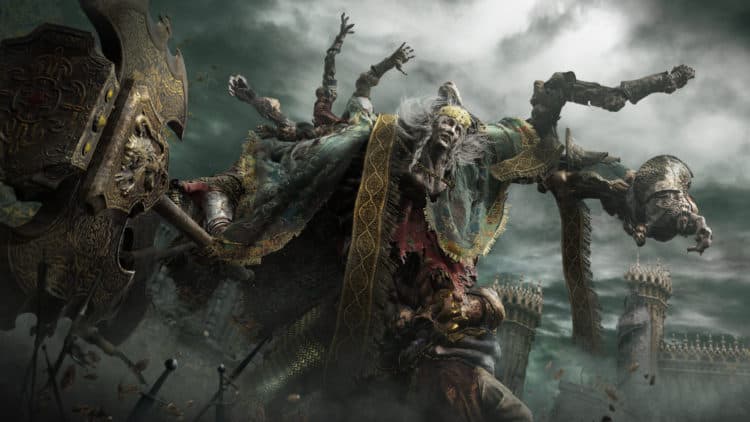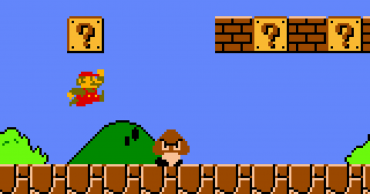
We’ve seen the tradition for years. A kid at a baseball game, glove in hand, runs straight toward the foul ball or home run only for a 40-year-old man to cut them off, keep the ball for himself, and celebrate like he’s Derek Jeter incarnate. Suddenly, a sweet reminder of how fun the sport can be is, once again, outshined by people who don’t see the ball for what it is. They see dollar signs, a story to tell their friends and a sense of accomplishment for ruining a 10-year-old’s day. There’s nothing legally, even morally wrong with it, but it always strikes the wrong way, nonetheless. Perhaps, it’s because we live in a world where this mindset has sucked the fun out of every hobby — namely, video games.
Video games were always bound to be a collector’s item. Hell, if I could travel back in time and stop myself from selling a box full of my NES games for a mint condition Home Alone on SNES, I’d probably try to talk some sense into my six-year-old self. However, that was my decision, and the fact that I don’t have those games as a collector’s item is more about my lack of discipline when I was still learning about the concept of nostalgia. Those games were bound to be collector’s items because they came from an era where they were either loved by all, taken for granted, or kept for nostalgic purposes. They weren’t just games, but memories of blowing into the cartridge to let the dust out despite many claims that this never helped. Now, we never get this.
Chop it up to the fact that discs are inherently expendable with zero sense of notalgia and any signs of wear and tear, meaning a pixelated picture or unplayable game. Still, the modern generation of games is far less likely to have an impact in 25 years. To combat this, the industry started to make things collector’s items at the start. 2020 had some predictable setbacks in rolling out the next generation. The PS5 was bound to be a hot commodity the second that it was announced. The same goes for the upcoming OLED Nintendo Switch. However, it’s also becoming increasingly clear that gaming is going the way of sneaker culture and the 40-year-old man at the game. In short, games are becoming less about pleasure and nostalgia and more about investment opportunities.
Using our nostalgia as investment opportunities can explain everything from NBA Top Shot to a string of NFTs. There’s nothing wrong with any of these. Top Shot may not be for everyone, but their sole value lies in ownership and distribution. They are, more or less, digital trading cards for adults and inherently made with the collector (read: “investor”) in mind. Even as a kid, my card collection was always going to make me millions.
Video games and other entertainment should be different. They need time to shine and gestate. They build a special place inside our hearts so that our attachment to Super Mario World or Game Boy’s Pokemon goes beyond the way its value skyrockets, and supply and demand will never dictate where their fandom goes. They had a chance to play these games when they first came out. While sellouts were always inevitable, the next wave didn’t require events, announcements, and a gang of scalpers trying to get their hands on these commodities before the dreaded “casual gamers” do so for their enjoyment. That was the way things used to work. Now, game companies from Sony and Microsoft to Nintendo want their games, systems, and worthless accessories to have far more demand than supply. They weaponize nostalgia in ways that rob people of sharing something special with the kids in their lives by replacing the joy of functionality with the pleasure that you played Jingle All the Way and won.
I was lucky enough to get a PS5 at launch. Despite Sony’s attempt to build up hype while releasing 15 units to the world at the start, I lucked out, hit submit before someone else, and got my system right at launch. Accessories, on the other hand, are a different story. The Pulse 3D headset was my first adventure. To say that Sony skimped on its rollout is putting it lightly. Anyone who wasn’t on their favorite website for a single two-minute window months before release was out of luck. They boasted how cool it was, made sure that we’d all want it, then basked in Purge-like glory while the consumers fought to get their hands on something seemingly impossible to find for months. It didn’t stop here, however. Finding something as mundane as a media remote took months of GameStop workers lamenting Sony’s strategy of rolling things out one unit at a time with hopes that it builds up interest. Capitalism and gaming always went together like peanut butter and jelly, but it has since usurped the games themselves, and it isn’t just in physical games and collector’s toys, either.
I could have written yet another article about microtransactions, but it’s been done so many times by people who can explain it better than I ever will. However, they might be the key to understanding gaming’s darkest path. Every game is less an experience of buying, taking home, and enjoying for a time. Now, you get annual $70 releases from franchises that, in turn, want you to buy your way to online success rather than doing things the old-fashioned way. Video games are no longer a retail activity. They’re a sport, a digital marketplace, and a status symbol for those who value posting pictures of their Pulse 3D Headset over getting the 3D sound they emit. Nintendo doesn’t realize Mario 3D All-Stars or a vintage Game + Watch system to show how they got here. They do so for the resale market that makes it as buzzy as it is hard to find.
For nostalgia such as this, I understand. However, every time a new release feeds off the consumer’s Peter Pan desire not to grow up, they no longer get to tell us that they’re making it for gamers. Gamers are now a secondary figure in the game collecting world. The real money lies in those who will never take the newest limited edition out of the box, not the person who wants their child to play the games they did. While games like Call of Duty or every sports franchise can get away with this, it’s hard to get that aura of excitement when the game you want is more likely to sit in shame with the rest of the forgotten collector’s items. Not a sin, but when these are the consumers we’re marketing for instead of the home gamer who wants to play, something’s got to give.
Video game collectors are not the problem. Scalpers are an unfortunate fact of life in most things I enjoy. However, when the capital gains usurp the games, system, and accessories themselves, the magic of the games themselves suffer. As a result, even those lucky enough to get their hands on an NES Classic treat it like their granny’s urn and less like a nostalgic look into when gaming was about the art itself.
 Follow Us
Follow Us





